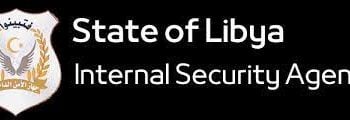By Libya Herald staff.
Tripoli, 8 September 2014:
An uneasy calm has settled in Tripoli as residents await the next development.
Outwardly there is . . .[restrict]a semblance on normality. Militia members of the Libya Dawn operation are no longer present at main intersections and there is more traffic on the streets. But it is nothing like the situation a few months ago when the roads were packed. Traffic jams, for the moment, are a thing of the past.
Similarly, some people are drifting back to work and yesterday there was an attempt to start schools again as the capital’s present masters try to give the impression that everything is now working. But very few parents drive their children to school, and the university remains firmly closed – in part because so many residents have left, either to stay elsewhere in the country, or have gone abroad.
The overwhelming majority of shops remains closed. On the Swani road today, which is normally bustling with traffic, no more than a third of the shops were open. Throughout the city, it is getting easier to buy bread but there are still queues at petrol stations. There are still power cuts of around three to five hours a day – albeit less than before – and on Friday and Saturday there were water cuts, supposedly because there was no electricity for the pumps. The internet too remains intermittent.
The fears that Tripoli may simply be experiencing a calm before another storm are the result of constant reports that the Zintanis plan to return to the capital in what would be the third of Libya’s “Operations” After Operation Dignity and Operation Libya Dawn there is now Operation Burkan (Volcano) which reportedly aims to push out the Misratan-led Operation Dawn forces from the capital. It is supposedly made up of Zintanis and others from a number of other western towns and is allegedly under the control of the Chief of Staff.
However, there has been no official statement from the latter, although the spokesman of Operation Dignity, Mohamed Hejazi, has said that the “army” was preparing to launch a military operation within days in Tripoli.
The commander of Dignity’s Air Force, Adam Saqr Geroushi has likewise told the Libya Herald that an attack was to be made and that it would include air strikes.
The sense that the calm is temporary is fuelled by the fact that the sound of distant explosions in the west, in Janzour and the Warshefana area, can still be heard in Tripoli.
There has been no let-up in the fighting there between the Warshefana and their allies on the one side and the coalition of Libya Shield West, the Janzour Fursan Brigade and various forces from Zawia on the other.
The day before yesterday, according to an official at Zahra hospital, the main medical facility in the Warshefana district, 12 people were killed and other 10 wounded, two critically, in heavy shelling in the area. Despite earlier reports, the official insisted no children were killed or wounded. However, he said that four elderly men who were quietly sitting and talking at a farm were killed when they took a direct hit from a shell.
Missiles are going the other way too. According to the Libya news agency LANA today, a Zawia revolutionary official accused the Warshefana of firing ten missiles at the town, most of which handed on stores of the Zawia Oil Refining Company but one on an ordinary house.
Such attacks expose the randomness of death and injury in the present crisis. Almost all the militias are using youngsters who have no training and who are shooting missiles randomly at supposed opponents. “It’s like PlayStation for them,” said a leading state official who asked not to be named.“They are undisciplined and irresponsible”, he stated.
He, however, was not convinced that Tripoli was experiencing the calm before another storm. “More and more people think that Tripoli will now stay quiet”, he claimed. “There are more people on the streets. There is more late night shopping. No one is taking this [the arrival of forces from Zintan] seriously,” he stated.
Moreover, he claimed, Tripolitans were generally happy that the Zintanis had gone.
A primary concern now, he added, was to get the city back to normal and to deal with the problems of the displaced, especially those from Gasr Ben Gashir. [/restrict]








